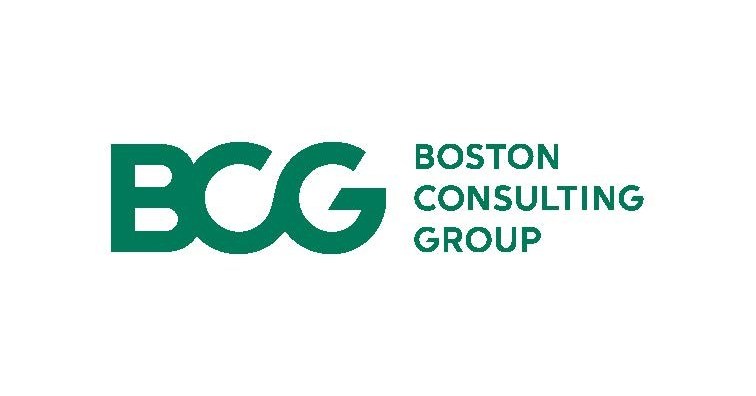Quantum computing is expected to create economic value of up to $850 billion by 2040

Despite a 50% decline in overall technology investment, quantum computing was attractive 1.2 billion US dollars of venture capitalists in 2023, according to new study by BCG
BOSTON, July 18, 2024 /PRNewswire/ — Three years ago, the Boston Consulting Group (BCG) published its forecast for the quantum computing market. Since then, both quantum technology and its counterpart, classical computing, have made unexpected advances, changing the trajectory – if not the overall direction – of this evolving market.
In his updated analysis entitled The long-term forecasts for quantum computers remain positive, BCG reiterates its prediction that quantum computing 450 billion US dollars To 850 billion US dollars of economic value worldwide, the preservation of a 90 billion US dollars To 170 billion US dollars Market for hardware and software providers until 2040.
“Is quantum computing close to reaching its transformative potential? The answer is currently mixed,” said Jean-François BobierPartner and Vice President at BCG and co-author of the report. “While there are clear scientific and commercial problems where quantum solutions will one day far outperform the classical alternative, this advantage has yet to be demonstrated at scale. Nevertheless, the momentum is undeniable.”
According to the report, quantum computing grew despite a 50% decline in overall technology investment 1.2 billion US dollars by venture capitalists in 2023, underscoring continued investor confidence in its future. Governments around the world are also making major investments in the technology, envisioning a future in which quantum computing plays a central role in national security and economic growth. Public sector support is expected to exceed 10 billion US dollars in the next three to five years, giving the technology enough runway to scale.
In its 2021 report, BCG assumed that the market would mature in three phases, and that is still the case. The phases are: Noisy Intermediate-Scale Quantum or NISQ (by 2030), Broad Quantum Advantage (2030-2040), and Full-Scale Fault Tolerance (after 2040). Despite continued confidence in the projected economic value of quantum computing, BCG’s previous assumptions about near-term value creation in the NISQ era have proven to be overly optimistic and have been revised.
The NISQ era has not lived up to BCG’s expectations for two reasons: technical hurdles in hardware development are proving difficult to overcome and competition from classical computers is stronger than expected. AI has exceeded expectations in scientific fields, offering viable alternatives to previously intractable problems. However, by leveraging analog methods, quantum machines can still deliver tangible value, especially in materials and chemistry simulations, from 100 million US dollars To 500 million US dollars one year, during the NISQ era.
Although this adjustment represents a significant reduction from BCG’s 2021 forecast, it is not expected to significantly impact the hardware and software vendor market. BCG continues to forecast a vendor market valued at 1 billion US dollars And 2 billion dollars by 2030, driven by three factors:
- Public sector support: As has been the case in the past with technologies such as semiconductors, the Internet, and GPS, the public sector is providing significant support through contracts and grants. BCG estimates that public contracts already cover over half of the market, and based on existing program announcements and the geopolitical importance of quantum technologies, this demand should continue over the next three to five years.
- Corporate investments: Leading companies are investing in enterprise-grade quantum capabilities. BCG’s 2023 publication on quantum adoption tracked more than 100 active proof-of-concept projects at Fortune 500 companies, totaling 300 million US dollars.
- Supply chains: Suppliers can generate revenue by forming supply chains that include equipment such as controllers, dilution refrigerators, lasers, vacuums and software. According to BCG’s study, supply chain spending will account for 5 to 10 percent of quantum computing hardware and software sales this year.
“Our initial optimism regarding revenues during the NISQ period was justified,” said Matt LangioneManaging Director and Partner at BCG and co-author of the report. “Technology providers’ revenues are approaching 1 billion dollars annually. However, creating meaningful value for end users takes longer. Despite important signs of progress and clearly defined roadmaps, quantum computing has not yet experienced its ChatGPT moment.”
Download the publication here:
https://www.bcg.com/publications/2024/long-term-forecast-for-quantum-computing-still-looks-bright
Media contact:
Eric Gregoire
+1 617 850 3783
(email protected)
About Boston Consulting Group
Boston Consulting Group partners with business and society leaders to address their most important challenges and seize their greatest opportunities. When BCG was founded in 1963, it was a pioneer in corporate strategy. Today, we work closely with our clients to take a transformative approach that benefits everyone involved. We enable companies to grow, build sustainable competitive advantage, and have a positive impact on society.
Our diverse, global teams bring deep industry and functional expertise and a range of perspectives that challenge the status quo and inspire change. BCG delivers solutions through leading management consulting, technology and design, and corporate and digital projects. We work across businesses and at all levels of the client organization in a unique collaborative model, driven by the goal of helping our clients succeed and empowering them to make the world a better place.
Source: Boston Consulting Group (BCG)




